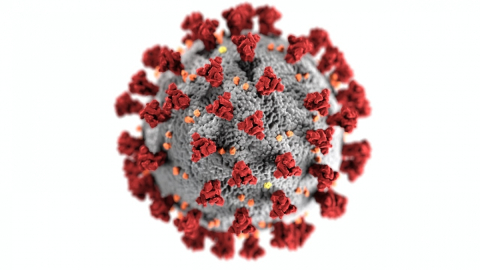Introducing the science world to a unique Quebec COVID-19 resource

PLOS ONE publishes foundational article on the Biobanque québécoise de la COVID-19 (BQC19)
Montreal, QC, May 19, 2021— A Quebec-based biobank of COVID-19 patient and control samples has once again made it onto the pages of a major scientific journal. But this time the paper is about the project itself. The design and goals of the Biobanque québécoise de la COVID-19 (BQC19), as well as how its samples and data are made available to the broad COVID-19 research community, have been published in PLOS ONE.
The federally and provincially funded BQC19 was launched in April 2020, just two weeks after receiving its mandate. In the paper, entitled “The Biobanque québécoise de la COVID-19 (BQC19) – A cohort to prospectively study the clinical and biological determinants of COVID-19 clinical trajectories,” the authors write that the urgency and magnitude of the pandemic demanded immediate action. “Researchers require access to high-quality biological materials and data from SARS-CoV-2 infected and uninfected patients.”
According to the authors, the biobank will help clinicians identify individuals at increased risk for complications and poor outcomes in order to adopt appropriate measures to protect them, to help the government take public health measures to control the spread of the infection, and to anticipate and better prepare for future pandemics. They also write that the samples will help researchers understand the pathophysiology of COVID-19, and discover and develop new biomarkers of disease susceptibility and progression, and new or reoriented therapies and vaccines.
The biobank has so far managed to collect blood samples from 2,755 Quebecers in nine different clinical sites in four different regions around the province. Patients (or, in some cases, family members) approached by clinicians, have been agreeing to donate their samples at a participation rate of more than 75 percent, with many also donating in follow-up visits.
“This level of take-up is a testament to the crucial foundational work done by the biobank to develop anticipatory and prospective policies to ensure that appropriate safeguards were put in place to protect the privacy of patients/participants and facilitate efficient and ethical sharing of both their data and samples,” says Ma’n H. Zawati, Assistant Professor at McGill University, Executive Director of McGill’s Centre of Genomics and Policy and one of the paper’s three corresponding authors.
The biosamples, which include plasma, serum, peripheral blood mononuclear cells, as well as DNA and RNA isolated from whole blood, are derived not only from severe COVID-19 cases, but also non-severe cases, which make up more than 25 percent of the samples. Thus far, more than two dozen researchers have been granted access to the samples and data collected by the biobank.
“This kind of exposure in PLOS ONE will certainly help convince more researchers to take advantage of this vital tool,” says Karine Tremblay, another corresponding author on the paper that includes 23 other authors. Tremblay, a research-professor in the Dept of Pharmacology and Physiology in the University of Sherbrooke’s Faculty of Medicine and Health Sciences, and whose research work is based at the CIUSSS du Saguenay-Lac-Saint-Jean (Saguenay Campus), foresees an exponential increase in requests for “this valuable and, in the case of data, non-depletable resource.”
This is the sixth paper to be published or under peer-review that has emerged from the BQC19 endeavour. The use of the biosamples has led to a range of discoveries, from a protective protein, OAS1, that mitigates the severity of COVID-19, to immune impairments specifically linked to the SARS-CoV-2 virus.
“This is more of a foundational article but it will help the greater research community understand BQC19’s potential,” said Simon Rousseau, the third corresponding author and Associate Professor, Department of Medicine at McGill University and a researcher at the RI-MUHC’s Meakins-Christie Laboratories. “I can see this paper— and these biosamples— inspiring many future studies on COVID-19.”
About BQC19
The Biobanque québécoise de la COVID-19 (BQC19) is a pan-provincial initiative that collects, stores and shares blood samples from COVID-19 patients, both severe and non-severe cases, in an effort to respond effectively to the public health challenges posed by the pandemic. Supported by the Fonds de recherche du Québec – Santé (FRQS), Génome Québec and the Public Health Agency of Canada, the BQC19 collects a growing number of samples from nine locations around Quebec. Its ultimate goal is to increase the global efforts to better understand the evolution and determinants of SARS-CoV-2 infection.